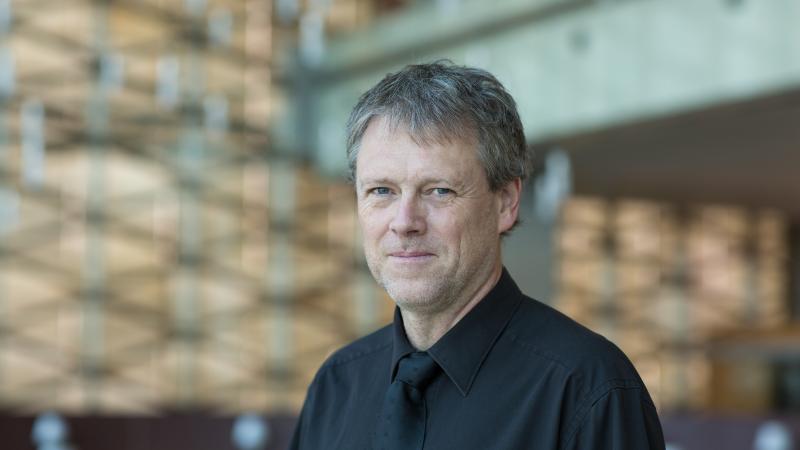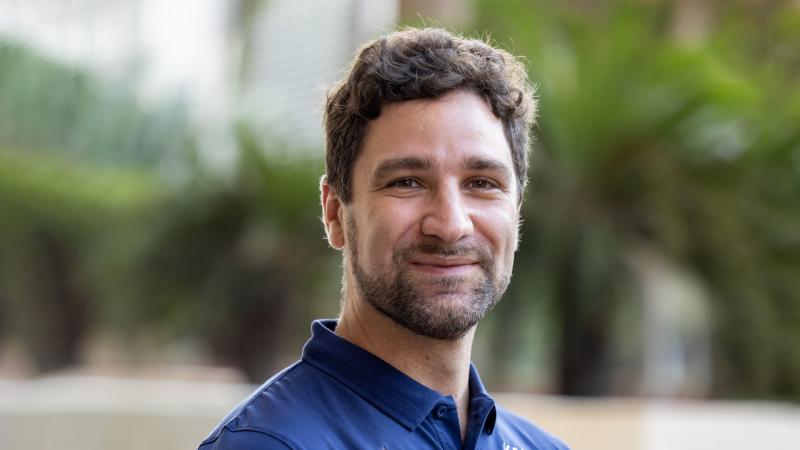By David Murphy
KAUST Associate Professor of Statistics Raphaël Huser has been awarded the Abdel El-Shaarawi Early Investigator (AEEI) Award 2022 from The International Environmetrics Society (TIES), an association of the International Statistical Institute (ISI). Huser is the third KAUST faculty member in statistics to receive the AEEI Award after Professors Marc Genton (2010) and Ying Sun (2016).
The AEEI Award 2022 was established by the TIES Board to “recognize and honor early investigators who have made outstanding contributions to the development of statistical and/or quantitative approaches for research in the environmental sciences,” according to the Society’s website. The award is given to a researcher and TIES member (for 2021 and 2022) who has obtained their Ph.D. within 12 years of the nomination deadline (February 15, 2022).
The awards ceremony took place during the 2022 Annual Meeting of TIES, held virtually on November 17-18. Professor Huser also gave a keynote plenary talk during the event.
Huser is "honored and proud" to receive the AEEI award recognizing his environmental statistics research. He is also extremely grateful to his students, postdoctoral fellows, and international collaborators who contributed to his success.
“I owe all of my colleagues in statistics a debt of gratitude for their tremendous support, especially my students and postdocs, without whose hard work and diligence this would not have been possible, as well as Professor Håvard Rue, who nominated me for the award,” he emphasized.
“Being the recipient of this early career investigator award is important to me for three main reasons: first, it validates the quality and impact of our work; second, it will help boost the visibility of my research group and the KAUST statistics program among the global statistics community; and third, it helps to reinforce KAUST as a dynamic center for environmental statistics.”
Predicting extreme events
Professor Huser’s research primarily focuses on developing new flexible and theoretically motivated statistical models and computationally efficient inference methods for (possibly compound) extreme events.
These specialized models and methods, with desirable statistical properties, are used for modeling and predicting extremes of complex spatio-temporal processes arising in various applications from, for example, environmental science (the modeling of heavy precipitation, heatwaves, high sea surface temperatures, strong winds, wildfires, devastating landslides, severe air pollution), as well as crypto-finance and neuroscience.
The work of KAUST’s Extreme Statistics research group, led by Huser, can, he believes—if applied appropriately by other researchers, stakeholders or authorities to improve risk assessment, management and preventive planning—address some of Saudi Arabia’s long-term goals.
“My work aims to make an impact in extreme statistics and beyond by improving models, prediction and quantification of risk associated with extreme events in high-dimensional, spatio-temporal, non-stationary settings and to identify their key drivers. Recently, I have invested more time and effort to combine the theoretical rigor and resilience of extreme-value models with the predictive power and computational convenience of deep-learning approaches.
“My focus now is to develop new statistical methodology that exploits advances in machine learning to enhance the accurate modeling, fast inference, and prediction of extreme events in complex settings,” he concluded.


